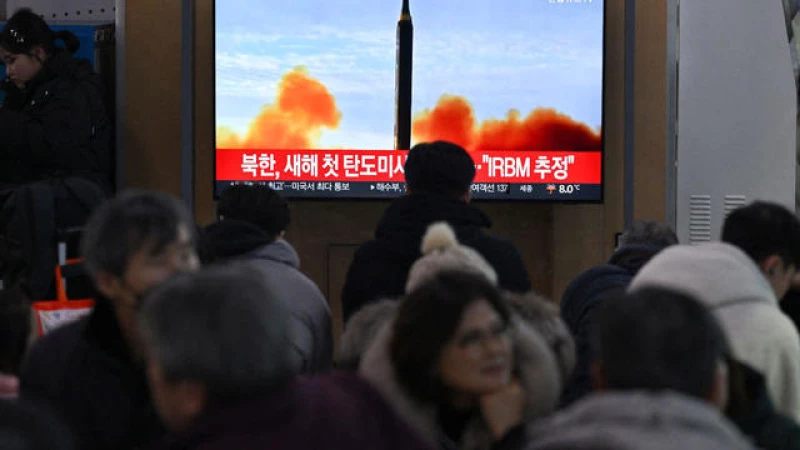Reports from neighboring countries indicate that North Korea launched multiple short-range ballistic missiles towards its eastern waters on Monday morning. This comes shortly after the conclusion of joint military exercises between South Korea and the United States, which North Korea perceives as a rehearsal for invasion.
These missile launches mark North Korea's first known testing activities in approximately a month. Analysts had previously anticipated that North Korea would continue its missile tests and escalate its aggressive rhetoric leading up to the U.S. presidential election in November, in an effort to strengthen its position in future negotiations.
Japanese Prime Minister Kishida condemned North Korea's ongoing ballistic missile tests, labeling them as actions that pose a threat to the peace and security of Japan, the region, and the international community. He expressed strong opposition to North Korea's testing actions, emphasizing that they are in violation of U.N. Security Council resolutions prohibiting the country from conducting any ballistic activities.
South Korea's military said it also detected "several" suspected short-range ballistic launches by North Korea on Monday morning. The Joint Chiefs of Staff called the launches "clear provocation" that threaten peace on the Korean Peninsula. It said South Korea will maintain readiness to repel any provocation by North Korea, based on its solid military alliance with the United States.
According to Japan and South Korean assessments, the North Korean missiles fired from its capital region traveled a distance of 300-350 kilometers (about 185-220 miles) at the maximum speed of 50 kilometers (about 30 miles) per hour.
The U.S. State Department condemned the launches, saying they pose a threat to the North's neighbors and undermine regional security. A State Department statement said the U.S. commitment to the defense of South Korea and Japan remains "ironclad."
The U.S. stations a total of 80,000 troops in South Korea and Japan, the backbone of its military presence in the Asia-Pacific region.
During the South Korea-U.S. military drills that ended Thursday, North Korean leader Kim Jong Un guided a series of military training exercises involving tanks, artillery guns and paratroopers and called for greater war fighting capabilities. The 11-day South Korean-U.S. drills involved a computer-simulated command post training and 48 kinds of field exercises, twice the number conducted last year.
North Korea's Missile Tests During Rivals' Training
While its rivals were conducting training exercises, North Korea refrained from performing any missile tests. The country's missile tests are seen as major provocations, as North Korea has been working on arming its missiles with nuclear warheads to target the U.S. mainland and its allies. Although experts believe North Korea already possesses nuclear-armed missiles capable of reaching South Korea and Japan, they have not yet developed long-range missiles that can strike the U.S. mainland.
North Korea's most recent missile tests prior to Monday occurred in mid-February when they launched cruise missiles into the sea. Tensions on the Korean Peninsula have remained high due to North Korea's continuous missile tests since 2022, many of which involved nuclear-capable missiles aimed at South Korea and the U.S. mainland. In response, the U.S. and South Korean forces have increased their training exercises, including joint drills with Japan.
Experts suggest that North Korea aims to strengthen its position in future negotiations with the United States by expanding its weapons arsenal. The country likely seeks significant sanctions relief while retaining its nuclear weapons. Concerns about North Korea's military activities have escalated following Kim's announcement in January that the country intends to revise its constitution to remove the goal of peaceful unification of the Korean Peninsula. Instead, Kim emphasized that South Korea is considered North Korea's "invariable principal enemy," and any future conflict could lead to the annexation of the South.
Speculations on North Korea's Actions Along the Border
Speculations are rife that North Korea might initiate small-scale provocations along its tense border with South Korea. However, experts believe the likelihood of a full-scale attack by North Korea is low, given that it is aware of the superior military strength of the U.S. and South Korean forces.







